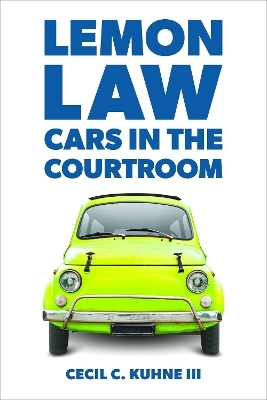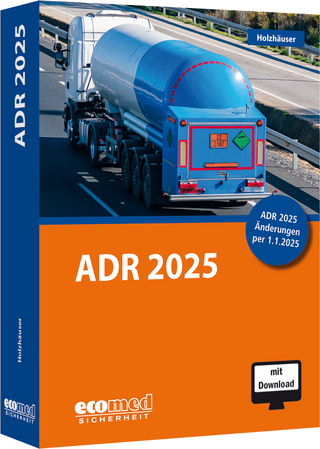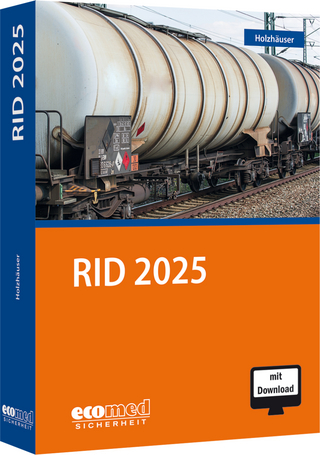
Lemon Law
Cars in the Courtroom
Seiten
2022
American Bar Association (Verlag)
978-1-63905-175-5 (ISBN)
American Bar Association (Verlag)
978-1-63905-175-5 (ISBN)
- Titel z.Zt. nicht lieferbar
- Versandkostenfrei innerhalb Deutschlands
- Auch auf Rechnung
- Verfügbarkeit in der Filiale vor Ort prüfen
- Artikel merken
This book places lemon laws in the context of actual controversies, offering a useful reference for those entering the automotive fray between manufacturers, dealers, leasing companies, and consumers.
Every state in the country has enacted consumer-protection legislation known as a lemon laws to assist new vehicle buyers with either recurring mechanical problems (commonly referred to as “warranty nonconformities”) in spite of attempts by manufacturers and dealers to repair them, or situations where the defects have caused the vehicle to be out of service for a long period of time.
As straightforward as lemon laws appear, a surprising number of very interesting—and sometimes complex—legal issues arise, leading to a substantial amount of litigation (numerous firms around the country specialize exclusively in lemon law cases). Such thorny legal issues include:
Is substantial impairment of the defective vehicle “to the consumer” to be judged as an objective test or a subjective one?
Must the consumer be completely unaware of the nonconformity before accepting delivery of the vehicle?
How specific must the consumer be in notifying the manufacturer or dealer of the consumer’s selection of the remedy to either replace or buy back the defective vehicle?
Must all accessories of a vehicle replaced pursuant to the lemon law also be brand new, even if not defective?
Can the consumer be required to sign a general release in order to receive the remedies afforded by the lemon law?
Do negotiations between the consumer and the manufacturer or dealer toll the time in which the manufacturer must replace or buy back the defective vehicle?
Is the manufacturer or dealer allowed more time to replace or buy back the defective vehicle if the consumer is engaged in obstructive tactics?
Where is the line between personal and business use of the vehicle which makes the vehicle ineligible for lemon law enforcement?
Are leased vehicles covered under lemon laws, and if so, how is the transfer of the vehicle’s title handled?
Do lemon laws apply to demonstrators, motor homes, and motorcycles?
Each chapter is preceded by “practice tips,” and the text is organized logically to follow the progression and development of litigation claims.
Every state in the country has enacted consumer-protection legislation known as a lemon laws to assist new vehicle buyers with either recurring mechanical problems (commonly referred to as “warranty nonconformities”) in spite of attempts by manufacturers and dealers to repair them, or situations where the defects have caused the vehicle to be out of service for a long period of time.
As straightforward as lemon laws appear, a surprising number of very interesting—and sometimes complex—legal issues arise, leading to a substantial amount of litigation (numerous firms around the country specialize exclusively in lemon law cases). Such thorny legal issues include:
Is substantial impairment of the defective vehicle “to the consumer” to be judged as an objective test or a subjective one?
Must the consumer be completely unaware of the nonconformity before accepting delivery of the vehicle?
How specific must the consumer be in notifying the manufacturer or dealer of the consumer’s selection of the remedy to either replace or buy back the defective vehicle?
Must all accessories of a vehicle replaced pursuant to the lemon law also be brand new, even if not defective?
Can the consumer be required to sign a general release in order to receive the remedies afforded by the lemon law?
Do negotiations between the consumer and the manufacturer or dealer toll the time in which the manufacturer must replace or buy back the defective vehicle?
Is the manufacturer or dealer allowed more time to replace or buy back the defective vehicle if the consumer is engaged in obstructive tactics?
Where is the line between personal and business use of the vehicle which makes the vehicle ineligible for lemon law enforcement?
Are leased vehicles covered under lemon laws, and if so, how is the transfer of the vehicle’s title handled?
Do lemon laws apply to demonstrators, motor homes, and motorcycles?
Each chapter is preceded by “practice tips,” and the text is organized logically to follow the progression and development of litigation claims.
Cecil Kuhne is a litigator in the Dallas office of Norton Rose Fulbright, where he has been a member of the firm since 1993. His primary area of practice is the analysis, advocacy, and resolution of contentious commercial disputes, and particularly those concerning contractual interpretation, breach of fiduciary duty, and fraud related to business agreements. He also has considerable experience in corporate investigations, both internal and regulatory. He has published twenty books on litigation matters with the ABA.
| Erscheinungsdatum | 15.09.2022 |
|---|---|
| Zusatzinfo | Illustrations |
| Verlagsort | Chicago, IL |
| Sprache | englisch |
| Maße | 152 x 228 mm |
| Themenwelt | Recht / Steuern ► EU / Internationales Recht |
| Recht / Steuern ► Privatrecht / Bürgerliches Recht ► Transportrecht | |
| Recht / Steuern ► Steuern / Steuerrecht | |
| ISBN-10 | 1-63905-175-9 / 1639051759 |
| ISBN-13 | 978-1-63905-175-5 / 9781639051755 |
| Zustand | Neuware |
| Informationen gemäß Produktsicherheitsverordnung (GPSR) | |
| Haben Sie eine Frage zum Produkt? |


